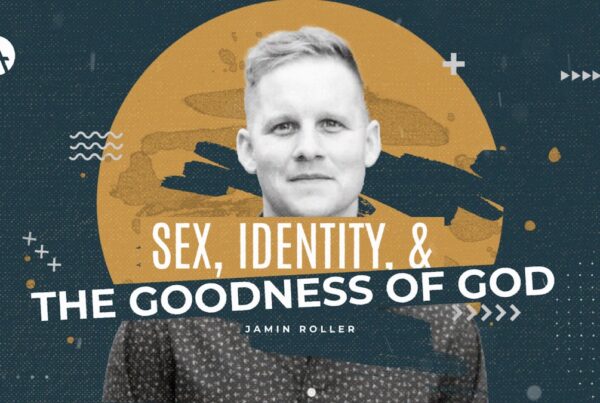How then will they call on him in whom they have not believed? And how are they to believe in him of whom they have never heard? And how are they to hear without someone preaching? And how are they to preach unless they are sent? As it is written, “How beautiful are the feet of those who preach the good news!” But they have not all obeyed the gospel. For Isaiah says, “Lord, who has believed what he has heard from us?” So faith comes from hearing, and hearing through the word of Christ. (Rom. 10:14–17)
When Paul wrote to the Romans, the church was a mess. Jewish Christians couldn’t get used to worshiping with converted Gentiles—those worlds never mixed before Christ. The church was slow to understand its responsibility to take the gospel to every nation. As Jesus handed the apostles the Great Commission, it took until Acts 11 to realize that when Jesus said “every nation,” he meant every nation.
Who Are “They”?
Many Jews were blind to the truth of salvation by faith, ignorant of the fact that salvation is open to everyone. That’s the bigger picture behind these verses. So when Paul moves on to verse 16, he refers to “they.” “Who are they?” is often the debate. Does he mean the Jews exclusively, or does he mean Gentiles and Jews? I’d say he means both because he uses the word “whosoever” in verse 13. It carries the same meaning, if not a slightly different application, in our world today.
We have unbelieving Jews and Gentiles wherever our churches are. The unbelieving Jew is somebody who thinks they’re too good to need God’s salvation. While the unbelieving Gentile is someone who thinks they don’t deserve it.
Many Christians behave like the Jews. They keep Jesus to themselves. They want to keep the gospel within their tribe, so they hide it, willingly or unwillingly, from sections of society they either fear or don’t understand. This is a danger to church planting. We can so easily plant or revitalize churches in our communities, but all we’re doing is plucking low-hanging fruit from the trees of our own culture. We avoid the back-breaking toil or breaking up the hard soil to plant gospel seeds among people who are different. We’re all united by one inescapable fact—whosoever calls upon the name of Jesus for salvation will be saved. That's the promise of God and the power of the gospel. Condividi il Tweet
However, the “whosoever” from verse 13 also includes the homeless man under the bridge, the rich man in his gated house, the street child that can’t read, the college professor, the technologically advanced citizens of the West, the suffering and struggling rural believers in Liberia. We’re all united by one inescapable fact—whosoever calls upon the name of Jesus for salvation will be saved. That’s the promise of God and the power of the gospel. Only the gospel carries enough power to break the hardest hearts and conquer the darkest soul.
The Delivery Mechanism
This verse also means that whosoever doesn’t call on the name of the Lord and respond in repentance and faith will not be saved. There’s no backup plan. If the “whosoever” cannot be saved without the gospel, we’re left with the tension of verse 14. “How then will they call on him if they don’t believe? How will they believe if they’ve never heard? How are they to hear without someone preaching?” The answer is: they can’t, and they won’t unless we preach the gospel.
Preaching is how the “whosoevers” can enter God’s kingdom. Every Christian’s priority has to be personal and corporate evangelism. If we want to see our churches filled with “whosoevers,” we must ensure that gospel preaching is at the heart of everything we do. If we want to see our churches filled with “whosoevers,” we must ensure that gospel preaching is at the heart of everything we do. Condividi il Tweet
The “whosoevers” are not won by osmosis. Acts of kindness don’t save them; they’re not going to come to Christ just because we’re friendly neighbors. Faith comes from hearing the Word of God proclaimed. Open your mouth and speak to all people. They hear, they believe, and they call out to God.
We have no idea who the “whosoevers” are in our communities. God has not given us that information. He’s given us the priority to preach the gospel at all times until we die.
Using the Normal Means
Evangelism won’t work without obedient preachers. Preaching is the normal means by which people are saved. God uses extraordinary means, like Paul’s testimony of Jesus visiting and speaking directly to him. If Paul wanted to, he could’ve beat the drum of seeking the Lord through visions and dreams. But he doesn’t. He knew his experience was a supernatural act outside of the norm. That’s why he’s constantly directing people to use the normal means given to us.
He’s called us to preach the gospel, not to debate the means. He’s called us to know, understand, and prioritize the gospel in our personal lives and in our churches. But knowing the gospel and loving the lost isn’t enough. Just loving the lost is like crying at the bedside of a dying patient with the cure in our hands. We must administer it. What good is the medicine? What good are our tears? So speak forth the very Word of God. It’s the only medicine that can save the sin-sick souls from eternal physical damnation. The “whosoevers” are not won by osmosis. Acts of kindness don’t save them; they’re not going to come to Christ just because we’re friendly neighbors. Condividi il Tweet
Preaching the gospel is the only way the “whosoevers” will call out to the Lord for salvation. It’s easy for evangelism to get pushed aside when problems arise. A danger for church planters is getting big enough to be sustainable and ease our foot off the accelerator. People move from being missional to becoming consumers very quickly. But our priority is evangelism, and we need to put the pedal to the metal.










